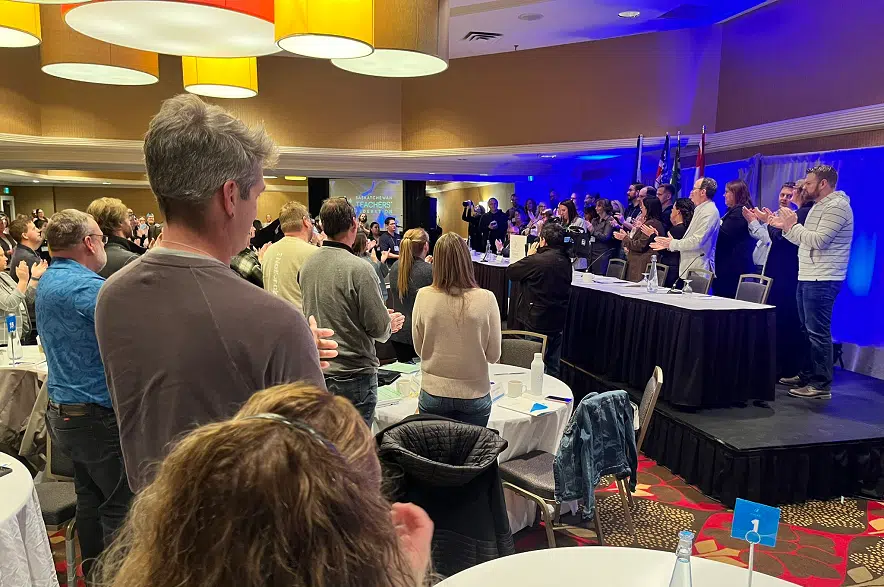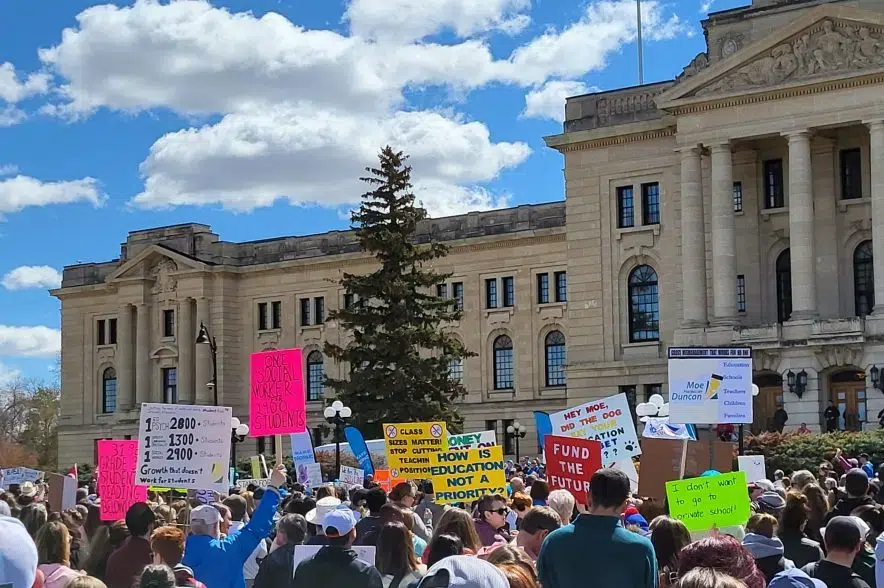Members of the Saskatchewan Teachers’ Federation have overwhelmingly voted in favour of job sanctions.
Of the 90 per cent of the members who voted, 95 per cent cast their ballots in favour of sanctions.
Last week Samantha Becotte, the union’s president, said bargaining with the provincial government had reached an impasse after the province wouldn’t engage with a number of issues raised by the federatrion.
“Some of them (are) trying to address the significant issues that we have in our schools, specifically class size and complexity, the violence in the classrooms and trying to have meaningful action towards truth and reconciliation,” Becotte explained.
The vote on sanctions was held Tuesday and Wednesday, with the results announced at the federation’s conference Friday morning.
“I want to be very clear that an obstinate and out-of-touch government is forcing this situation down an
unfortunate path,” Becotte said in a statement.
“Teachers want to negotiate a fair deal at the bargaining table. We are hopeful that the conciliation process will be successful. But the results of this vote send a very clear message. We are united, we are prepared, and we are ready to fight for our colleagues, our students and the families who are struggling in underfunded and under-resourced public schools across Saskatchewan. I want our government to finally listen to what teachers are telling them with this vote: Enough is enough.”

The results of the SFT’s sanctions vote were revealed Friday at a conference in Saskatoon, to applause from the membership. (Lara Fominoff/650 CKOM)
The federation didn’t announce specifics about sanctions on Friday morning, but Becotte previously said the measures could range from rotating withdrawal of extracurricular work to a full strike.
The union said it will be holding a rally in Saskatoon on Saturday and another in North Battleford the following weekend.
Becotte also encouraged the public to get in touch with their provincial representatives.
“Call or email your MLA and let them know this isn’t acceptable. Ask them to actually start negotiating and address class size, composition and student needs at the table.”
In previous interviews, Jeremy Cockrill, Saskatchewan’s minister of education, said he’s concerned about the possibility of a strike and wants to get back to the table and negotiate with the federation.
Despite expressing a desire for bargaining to resume, Cockrill said class size and composition isn’t something the government will address in negotiations.
“We’ve communicated to the (Saskatchewan Teachers’ Federation) that that specific topic, we believe, is best managed by local school divisions. That’s not something that we’re looking for in a bargaining agreement,” he said.
On Friday afternoon, the Government of Saskatchewan issued a response calling for bargaining to resume.
“We are disappointed that the STF walked away from negotiations and is willing to impose sanctions that could impact students and their families,” the government’s statement read.
“At the request of the STF, a conciliation board will be established in the coming weeks to assist the bargaining committees in reaching a new collective agreement. We remain at the table ready to bargain and it is our hope that the STF will come back and resume negotiations.”
Matt Love, education critic for the Saskatchewan NDP, also issued a statement responding to the vote results on Friday.
“Teachers are clearly united, after a decade of education cuts, in their call for improvements to their classrooms to better support their students. What does it say about the Sask. Party that they refuse to negotiate on nine of the ten issues teachers have identified as a priority — such as classroom size, classroom complexities and violence in the classroom?” Love asked in his statement.
“Instead of dealing with real issues, we see Scott Moe and his Education Minister using public tax dollars to launch a campaign to try and vilify teachers. Our teachers deserve better. Our students deserve better. It’s time for Scott Moe to get to the table and negotiate a fair deal that benefits both our teachers and our students.”











